You'll receive thorough
ongoing support during addiction recovery through structured
aftercare programs, peer mentorship, and
therapeutic interventions. Evidence shows these programs reduce relapse risk by up to 35% while providing 24/7 access to support networks and counseling services. Family involvement and
community-based resources fortify your recovery path, with success rates reaching 84.2% in extensive programs. Understanding the full scope of available support options can considerably improve your chances of lasting sobriety.
The Role of Aftercare Programs in Long-Term Recovery
Why do
aftercare programs play such a pivotal role in
addiction recovery? The evidence consistently shows that without structured aftercare support, you'll face an 85% chance of
relapse within your first year. However, when you participate in
extensive programs lasting over 30 days, your success rates can increase to 84.2%. Programs with
longer planned durations tend to demonstrate the most positive treatment outcomes. Similar to how
peer-reviewed research is carefully evaluated, addiction treatment programs undergo rigorous assessment to ensure their effectiveness. Effective aftercare combines multiple elements vital for your
recovery journey. Through social service integration, you'll access resources for housing, employment, and healthcare while developing essential life skills. Your customized treatment plan will incorporate behavioral therapy, family counseling, and medication support when needed. Regular check-ins and counseling sessions help maintain accountability and reinforce healthy coping strategies. This structured approach addresses both immediate recovery needs and long-term stability, dramatically improving your chances of
sustained sobriety.
Building Strong Peer Support Networks
When you connect with others in recovery through
structured mentorship programs, you'll benefit from the proven 35% reduction in relapse risk that
peer support provides. You can strengthen your recovery course by participating in both
in-person and online peer communities, which create essential accountability networks and reduce isolation. Building relationships with trained peer specialists and recovery coaches will give you access to
evidence-based support activities while fostering the mutual growth that occurs when people share their recovery experiences. Regular participation in mutual support groups provides a safe environment to develop
healthy coping mechanisms. These services are now widely accessible, with
peer support specialists available in 61.3% of treatment facilities nationwide. While research is still emerging in this field, studies have shown that peer support groups help improve
treatment engagement and reduce risky behaviors.
Mentorship Strengthens Recovery Bonds
How powerfully can
mentorship impact addiction recovery? Research shows that consistent mentor availability and continuous feedback can reduce
relapse risk by approximately 35%. When you connect with a mentor who's walked a similar path, you'll gain invaluable guidance through their
lived experience. Peer mentorship plays a vital role in
breaking stigma surrounding addiction and recovery. Your mentor will help identify
early warning signs of potential relapse, offering proactive interventions before challenges escalate. They'll teach you
practical coping strategies, including stress management techniques and trigger avoidance. Through structured peer programs like MAP, you'll develop stronger
treatment adherence and build lasting recovery skills. The
safe environment created through confidential mentorship allows for honest discussions about challenges. Mentors excel at
fostering social bonds while guiding mentees through their recovery journey. This relationship creates a foundation of trust and accountability while complementing your clinical therapy. Your mentor's success story serves as living proof that long-term recovery is achievable, strengthening your motivation and self-efficacy throughout the expedition.
Online Communities Foster Connection
Although
traditional support groups remain valuable,
online recovery communities have transformed addiction treatment by providing unprecedented
24/7 access to
peer support networks. Through platforms like Intherooms.com, you'll find diverse support channels while maintaining online anonymity, allowing you to engage comfortably at your own pace. Research shows that engaging with
non-drug-related forums significantly decreases the likelihood of relapse during recovery. The COVID-19 pandemic has made these digital platforms especially crucial as they enable individuals to maintain
recovery support services while adhering to social distancing guidelines. Studies indicate that participants typically spend about
28 minutes per engagement with recovery services. Fostering community engagement through multiple activities, from discussion boards to live meetings strengthens your
recovery identity and reduces relapse risks. Research shows that participating in
non-drug-focused communities, alongside recovery-specific groups, enormously improves outcomes. You'll benefit from sharing experiences with others who understand your process, whether you're pursuing formal treatment or natural recovery pathways. With over 22 million Americans having resolved their
substance use disorders, these online communities provide essential connections that complement traditional recovery programs.
Essential Components of Therapeutic Care
Successful addiction recovery relies on a thorough framework of therapeutic components working in harmony. You'll engage in evidence-based treatments like
cognitive-behavioral therapy to address thought patterns while participating in holistic therapies that promote
emotional regulation. These interventions often include
mindfulness techniques, yoga, and nutritional support to heal both body and mind. The program emphasizes
personal growth development through continuous self-reflection and behavioral modification. Medication-assisted treatment using
FDA-approved medications can help reduce cravings and prevent relapse when appropriate. Your treatment will incorporate structured elements such as individual counseling, group therapy, and
skill-building workshops to bolster your coping abilities. Through
family integration programs, you'll work on repairing relationships and establishing healthy boundaries. Professional mentorship and peer support groups provide additional layers of accountability and understanding. Recurring clinical check-ins and lifestyle assessments certify you're progressing through each stage of recovery while maintaining the stability needed for
long-term success.
Understanding Medication-Assisted Treatment Options
Medication-assisted treatment (MAT) stands as a
scientifically proven cornerstone in addressing opioid use disorder, with evidence showing it reduces
overdose rates by up to 76% within the initial three months. Evidence-based outcomes demonstrate that you'll experience significant improvements in
physical health,
reduced anxiety, and decreased
depression symptoms when participating in MAT programs. You're likely to see substantial reductions in heroin, opioid, and alcohol use within six months of treatment. Despite MAT's proven effectiveness, provider education challenges and stigma continue to limit access, with only 22% of adults with opioid use disorder receiving these medications. You'll achieve the best results through
extended treatment periods of 180 days or more, which dramatically lower your risk of relapse and serious opioid-related complications.
Family Involvement and Social Support Systems
Strong
family and social support networks play a fundamental role in
addiction recovery outcomes. Research shows that only 20% of individuals with substance use disorders seek treatment independently, but
family involvement substantially increases
treatment entry and retention rates. Through collaborative family planning, you'll develop strategies that address both the needs of the person in recovery and their support system. Strengthening family support systems involves education about addiction, creating contingency plans, and establishing clear communication channels. Family therapy models like Multidimensional Family Therapy (MFT) demonstrate superior outcomes compared to individual treatment alone. Technology now enables families to stay connected through
digital recovery support services and
remote therapy sessions. When families actively engage in the recovery process, they help create a more stable environment that promotes
long-term sobriety and healing.
Developing Effective Relapse Prevention Strategies
Preventing relapse requires an extensive strategy that addresses both immediate
triggers and long-term recovery needs. You'll need to develop a thorough prevention plan that includes identifying your personal triggers, establishing
coping mechanisms, and maintaining
accountability through support systems. By implementing grounding techniques like the
5-4-3-2-1 method and practicing mindfulness, you can effectively manage challenging situations when they arise. Setting
recovery benchmarks helps track your progress while building a strong support network guarantees you're never facing challenges alone. Your prevention strategy should include regular check-ins with support groups, professional counselors, and trusted family members. Remember to document your triggers, both internal and external, and create specific action plans for high-risk situations. This structured approach dramatically increases your chances of maintaining
long-term sobriety.
The Impact of Alumni Services and Community Resources
Building a strong
recovery support network through alumni services can vastly improve your chances of long-term sobriety, as evidenced by the remarkably low 8% relapse rates observed in
College Recovery Programs. You'll find that engaging with
peer support networks and community resources provides essential tools for maintaining recovery, while also connecting you with others who understand your path. Research shows that ongoing participation in
alumni programs and community support systems helps you navigate challenges more effectively, leading to better academic outcomes and sustained recovery success, with some programs reporting retention rates as high as 90%.
Building Recovery Support Networks
The development of essential recovery support networks plays a critical role in sustaining long-term sobriety, with evidence showing that 54.1% of individuals achieve remission through community-based support systems. You'll find that social capital development occurs naturally through peer support groups, which currently engage over 2.1 million participants nationwide. Community reintegration becomes stronger when you connect with mentor relationships and alumni networks that model successful recovery behaviors.
| Support Type |
Benefits |
Access Points |
| Peer Groups |
Shared experiences |
17,353 facilities |
| Digital Platforms |
24/7 availability |
900,000 users |
| Mentorship |
Reduced isolation |
Alumni networks |
You can utilize multiple support channels, from structured continuing care programs to online recovery communities, which provide immediate coping strategies and behavioral feedback while accommodating geographic limitations.
Strengthening Long-Term Success
Successful
long-term recovery depends heavily on extensive alumni services and
community resources, with research showing that structured post-treatment support systems reduce relapse rates to just 8%. Through
continuous care planning and
recovery focused employment initiatives, you'll find all-encompassing support that strengthens your path to sustained sobriety. Key components of long-term success include:
- Regular participation in alumni-led support groups and workshops that address ongoing challenges
- Access to peer mentoring programs pairing you with experienced recovery graduates
- Family involvement sessions teaching relatives effective support strategies
- Crisis intervention services available 24/7 for high-risk situations
These
evidence-based approaches contribute to impressive outcomes, including 70% graduation rates and successful
economic reintegration through maintained employment and educational achievements.
Creating Sustainable Recovery Goals and Milestones
When developing a
sustainable recovery process, establishing clear and structured goals becomes a cornerstone of long-term success. You'll benefit from creating customized goal setting using the
SMART framework, making objectives Specific,
Measurable, Achievable, Relevant, and Time-bound. This approach helps in monitoring therapeutic progress effectively while maintaining momentum. Your recovery expedition typically progresses through distinct phases, each with its own milestones. You'll start with
early-stage goals focused on abstinence and coping skills, move through
middle-stage emotional regulation and relationship repair, and advance to
maintenance-stage priorities like sustained therapy and community involvement. Consider both short-term objectives, such as daily structure and self-care routines, and long-term aspirations like career development and mentorship opportunities. Regular engagement with
support groups and peer mentors will help reinforce your progress.
Frequently Asked Questions
How Do Insurance Companies Typically Cover Long-Term Addiction Recovery Support Services?
Your insurance will typically set
coverage limits for addiction recovery services, often favoring short-term treatment of 7-30 days over extended care. You'll find most plans require you to use in-network service providers and obtain
preauthorization for treatment. While the Affordable Care Act mandates substance abuse coverage, your specific benefits may restrict long-term support options. You'll likely face
higher costs for out-of-network care or extended treatment beyond initial approval periods.
What Percentage of People Maintain Sobriety After Completing Different Types of Support Programs?
Recovery maintenance rates vary extensively across different support programs. You'll find that thorough treatment programs combined with
12-Step participation show better outcomes, with up to 40% maintaining sobriety after two years. However, relapse rates remain high, as less than 20% stay abstinent for a full year post-treatment. Your chances of
long-term sobriety improve vastly if you reach the five-year mark, where relapse risk drops below 15%.
How Long Should Someone Stay Involved in Recovery Support Programs?
You should plan to stay involved in
recovery support programs long-term, as research shows substance-specific timelines vary considerably. Opioid recovery typically requires 8.4 years, while alcohol recovery often extends to 21.9 years. Your aftercare planning should include ongoing
medication-assisted treatment when appropriate, and
relapse prevention strategies through mutual-help groups. Evidence shows continuous engagement in specialized programs, like
College Recovery Programs, leads to better outcomes with relapse rates as low as 8%.
Can Employers Legally Discriminate Against People Participating in Addiction Recovery Programs?
No,
employers can't legally discriminate against you for participating in addiction recovery programs. Both the
ADA and FMLA protect your rights and require employers to provide
reasonable accommodations for your treatment needs. You're entitled to privacy concerning your recovery status, and employers must maintain confidentiality about your condition. However, these protections only apply if you're not currently using illegal substances while maintaining active participation in recovery programs.
What Role Do Genetic Factors Play in Determining Success With Ongoing Support?
Your
genetic predisposition can profoundly influence your recovery success, but it's not deterministic. Research shows that genetic factors like OPRM1 variants can affect how well you'll respond to certain treatments and support programs. However,
environmental influences play an indispensable role. You'll have the best outcomes when your
support plan is customized to both your genetic profile and personal circumstances, allowing for adjustments in medication, therapy approaches, and support intensity.
 Why do aftercare programs play such a pivotal role in addiction recovery? The evidence consistently shows that without structured aftercare support, you'll face an 85% chance of relapse within your first year. However, when you participate in extensive programs lasting over 30 days, your success rates can increase to 84.2%. Programs with longer planned durations tend to demonstrate the most positive treatment outcomes. Similar to how peer-reviewed research is carefully evaluated, addiction treatment programs undergo rigorous assessment to ensure their effectiveness. Effective aftercare combines multiple elements vital for your recovery journey. Through social service integration, you'll access resources for housing, employment, and healthcare while developing essential life skills. Your customized treatment plan will incorporate behavioral therapy, family counseling, and medication support when needed. Regular check-ins and counseling sessions help maintain accountability and reinforce healthy coping strategies. This structured approach addresses both immediate recovery needs and long-term stability, dramatically improving your chances of sustained sobriety.
Why do aftercare programs play such a pivotal role in addiction recovery? The evidence consistently shows that without structured aftercare support, you'll face an 85% chance of relapse within your first year. However, when you participate in extensive programs lasting over 30 days, your success rates can increase to 84.2%. Programs with longer planned durations tend to demonstrate the most positive treatment outcomes. Similar to how peer-reviewed research is carefully evaluated, addiction treatment programs undergo rigorous assessment to ensure their effectiveness. Effective aftercare combines multiple elements vital for your recovery journey. Through social service integration, you'll access resources for housing, employment, and healthcare while developing essential life skills. Your customized treatment plan will incorporate behavioral therapy, family counseling, and medication support when needed. Regular check-ins and counseling sessions help maintain accountability and reinforce healthy coping strategies. This structured approach addresses both immediate recovery needs and long-term stability, dramatically improving your chances of sustained sobriety.
 Successful addiction recovery relies on a thorough framework of therapeutic components working in harmony. You'll engage in evidence-based treatments like cognitive-behavioral therapy to address thought patterns while participating in holistic therapies that promote emotional regulation. These interventions often include mindfulness techniques, yoga, and nutritional support to heal both body and mind. The program emphasizes personal growth development through continuous self-reflection and behavioral modification. Medication-assisted treatment using FDA-approved medications can help reduce cravings and prevent relapse when appropriate. Your treatment will incorporate structured elements such as individual counseling, group therapy, and skill-building workshops to bolster your coping abilities. Through family integration programs, you'll work on repairing relationships and establishing healthy boundaries. Professional mentorship and peer support groups provide additional layers of accountability and understanding. Recurring clinical check-ins and lifestyle assessments certify you're progressing through each stage of recovery while maintaining the stability needed for long-term success.
Successful addiction recovery relies on a thorough framework of therapeutic components working in harmony. You'll engage in evidence-based treatments like cognitive-behavioral therapy to address thought patterns while participating in holistic therapies that promote emotional regulation. These interventions often include mindfulness techniques, yoga, and nutritional support to heal both body and mind. The program emphasizes personal growth development through continuous self-reflection and behavioral modification. Medication-assisted treatment using FDA-approved medications can help reduce cravings and prevent relapse when appropriate. Your treatment will incorporate structured elements such as individual counseling, group therapy, and skill-building workshops to bolster your coping abilities. Through family integration programs, you'll work on repairing relationships and establishing healthy boundaries. Professional mentorship and peer support groups provide additional layers of accountability and understanding. Recurring clinical check-ins and lifestyle assessments certify you're progressing through each stage of recovery while maintaining the stability needed for long-term success.
 Strong family and social support networks play a fundamental role in addiction recovery outcomes. Research shows that only 20% of individuals with substance use disorders seek treatment independently, but family involvement substantially increases treatment entry and retention rates. Through collaborative family planning, you'll develop strategies that address both the needs of the person in recovery and their support system. Strengthening family support systems involves education about addiction, creating contingency plans, and establishing clear communication channels. Family therapy models like Multidimensional Family Therapy (MFT) demonstrate superior outcomes compared to individual treatment alone. Technology now enables families to stay connected through digital recovery support services and remote therapy sessions. When families actively engage in the recovery process, they help create a more stable environment that promotes long-term sobriety and healing.
Strong family and social support networks play a fundamental role in addiction recovery outcomes. Research shows that only 20% of individuals with substance use disorders seek treatment independently, but family involvement substantially increases treatment entry and retention rates. Through collaborative family planning, you'll develop strategies that address both the needs of the person in recovery and their support system. Strengthening family support systems involves education about addiction, creating contingency plans, and establishing clear communication channels. Family therapy models like Multidimensional Family Therapy (MFT) demonstrate superior outcomes compared to individual treatment alone. Technology now enables families to stay connected through digital recovery support services and remote therapy sessions. When families actively engage in the recovery process, they help create a more stable environment that promotes long-term sobriety and healing.









